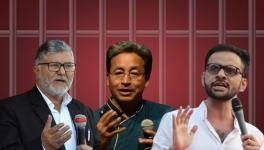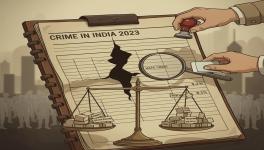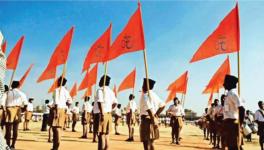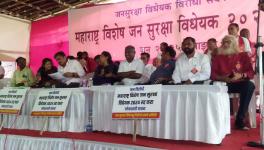Questions All Citizens Should Ask on Bhagat Singh’s Birth Anniversary
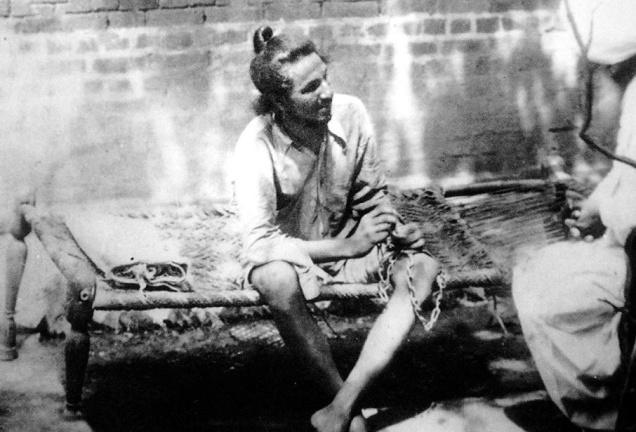
Bhagat Singh
In the middle of the afternoon of 8 April 1929, as the President of the Central Legislative Assembly at Delhi arose to discuss the Trade Disputes Bill, there was a loud bang. People began to flee as the Assembly filled with smoke. It was not long before people realised a bomb had exploded. Within moments, leaflets began to fall from the visitor’s gallery and the voices of two young men rang out: “Inquilab zindabad!” “Down with British imperialism!” “Workers of the world, unite!” The two men were Bhagat Singh and Batukeshwar Dutt.
The duo had an easy escape route after the bombing, but they did not try to run. Their intention was to tear down the veil of British rule and appeal to Indians to take action and resist. For, on that day in 1929, the Viceroy had proclaimed the enactment of two bills—the Trade Disputes Bill and the Public Safety Bill—although a majority of members had opposed and even rejected them. The bombs were Bhagat Singh and Batukeshwar Dutt’s way to mark the Indian people’s opposition to these laws. (The bombing was done so that no one would be killed.)
Today, 28 September, is the 113th birth anniversary of Shaheed Bhagat Singh, who was born in 1907 in Lyallpur, now in Faisalabad, Pakistan. The leaflet he threw in the Assembly said, “...while the people expecting some more crumbs of reforms from the Simon Commission, and are ever quarrelling over the distribution of the expected bones, the Government is thrusting upon us new repressive measures like the Public Safety and the Trade Disputes Bill, while reserving the Press Sedition Bill for the next session. The indiscriminate arrests of labour leaders working in the open field clearly indicate whither the wind blows.”
Right through his trial, at every hearing, Bhagat Singh asked Indians to stand up and act against British imperialism. Today, 90 years later, his thoughts are relevant to India like never before. Last week, the elected central government rushed 25 bills across Parliament. Some of the bills are similar to laws introduced during the British rule. The new bills include three labour “codes” that have recast industrial relations completely and a new policy on agriculture that was rushed past Parliament despite agitations by opposition parties, farmers and workers.
Few would miss how today’s government has an approach similar to the British Viceroy’s insistence in 1929 to push through the Trade Disputes Act. That bill was debated in the Central Legislative Assembly in December 1928, and rejected by the House of Representatives. It was then reintroduced in March the following year and again opposed by the people’s representatives. When it was clear it would not pass, the Viceroy simply asked the President of the Assembly to push it through as an ordinance.
History repeats itself. Labour laws were hastily cleared in Parliament last week and sent for the presidential nod despite grave concerns from unions, workers, and the Opposition. Similarly, the new agriculture policy of the current central government has a tremendously broad scope of influence. Therefore, it was a reasonable expectation of the Opposition that it should be widely debated. Yet, it, too, was passed with no meaningful discussion.
The 1929 Trade Disputes Act prohibited workers from striking, prohibited one union from supporting another, prohibited civil servants from becoming members of a political party and prohibited workers from providing financial support to political parties. While enacting this law, the British strongly repressed its opponents. The police made arrests with impunity. Arrests of labour leaders and progressive leaders began in March 1929. The Meerut Conspiracy Case trial also started. The government’s aim was clearly to crush the anti-imperialist revolutionary movement. Just a few months earlier, in November 1928, labour leader Lala Lajpat Rai had been killed in a police attack on an agitation.
All of this comes to mind as one rewinds to last week’s session in Parliament. The question-answer session was cancelled, the Opposition’s suggestions and amendments to the government’s bills were ignored, Members of Parliament were suspended and the farmers and workers agitating outside Parliament were labelled as “traitors”. Against this grim scenario, the central government passed the Industrial Relations Code Bill, the Occupational Safety, Health and the Working Conditions Code Bill and the Code on Social Security. The result is that now employers with 300 employees can fire their workers without permission from the government. Earlier, this relaxation was available for companies with up to 100 employees.
Now, if workers want to go on strike, they will have to give prior notice of 60 days. Earlier, the condition was six weeks. Changes to the code on occupational safety and working conditions are such that employers can now extend the period of contractual employment, which means employees can be fired without notice. Employers can also convert their full-time permanent employee into a contractual employee. With all these provisions in place, will the country gradually become like the East India Company? This question surely is on the minds of Indian workers today. (Even the three new policies on agriculture puts farmers in a position of great weakness vis-a-vis the corporate sector.)
The same government which does not have convincing statistics on how many of the workers who walked home during the Covid-19 crisis were from the unorganised sector (nor of how many died during this journey), is now making changes in the labour code with disregard for opposition. For the record, even today, more than 90% of Indian workers are in the unorganised sector. Further, the livelihood of 70% of Indians is still directly or indirectly related to agriculture. The government’s policy of denying basic facts about the economy shows it is trying to shirk from responsibility and this is its anti-worker and anti-farmer stand.
Until such situations persist, Bhagat Singh’s thoughts will remain relevant in Indian society. About workers, Bhagat Singh had said, “Despite being a major part of the society, the workers are being deprived of their basic rights and their hard-earned money is being usurped by the exploitative capitalists.”
Severe inequality and discrimination have led the world to a major crisis. The situation is not sustainable. In 1939-40, when India was under British rule, 1% of the rich are said to have owned 20.7% of the country’s total wealth. In 2019, according to Oxfam, 1% of Indians had accumulated 73% of the wealth generated in the country. The question then is whether there was economic inequality during the British Raj or does it exist in independent India?
In today’s India, policies should be formulated to ensure equitable distribution of wealth. No one should commit suicide due to poverty, unemployment or agricultural debt. Everyone must get food, clothing, shelter, health and education. This is only possible if the government adopts a pro-poor policy. Equality will not prevail in India until we accept Bhagat Singh’s ideas of social liberty.
Hanged when he was only 23, Bhagat Singh thought about most aspects of society beyond the usual capacity of his age or time. During British rule, there were two classes, the rich and the poor. The middle class was formed in the period after Independence. But, since 1991, a neo-middle class has arisen. The main difficulty comes from the role this section is playing in society. Along with the neo-middle class media, it has consistently adopted a lenient position on government policies towards workers and farmers. As a result, no discussion takes place on issues that are truly of social concern to a vast majority of Indians. That is how the impact of drastic changes in labour laws and agricultural policy can be pushed to the sidelines.
Unity amongst workers, the exploited and the deprived can end exploitation, and the middle class can play an important role in this broad unity. However, whenever there is a possibility for such unity, the ruling party consciously thrusts identity-related conflicts into the foreground. Bhagat Singh used to get very angry when this happened in his day. He said, “Unless we forget our differences, castes, religions, languages and regions, we will not be able to achieve true unity, so we can move towards freedom… The real meaning of our freedom is not only to be free from British slavery, but also for people to live together and be free from mental slavery.”
The question arises, did the media discuss the bills passed in Parliament adequately, and cover all their important aspects? No, the media thinks film-makers’ private lives are more important than workers and farmers. This brings to mind what Bhagat Singh said on the media: “The real duty of the media is to educate, remove narrowness in the minds of the people, eradicate racist sentiments, build mutual trust and a unified Indian nationalism. But they have made it their main duty to spread ignorance, promote narrow-mindedness, make racists, fight wars and destroy the social cohesion of India. Considering the current situation, tears of blood flow from the eyes and the sad question arises, what will happen to India?” This statement applies even to the media of independent India. Our media needs to introspect from Bhagat Singh’s point of view.
Today’s movements for justice and equality desperately need the same loyalty, perseverance, optimism, determination and understanding as Bhagat Singh. All political parties must follow his ideas of patriotism rather than outdated ideas on religious nationalism. Bhagat Singh was tried for declaring war against the King of England, but we, living in independent India, should have the freedom to speak, write and agitate according to our Constitution. Still, writers and agitators who speak out against the government are being imprisoned. Charges are framed against them under laws such as UAPA—but what is the justification of “treason” laws in free India? This is a question every citizen should ask on Shaheed Bhagat Singh’s birthday.
The author is former vice president, World Federation of Democratic Youth. The views are personal.
Get the latest reports & analysis with people's perspective on Protests, movements & deep analytical videos, discussions of the current affairs in your Telegram app. Subscribe to NewsClick's Telegram channel & get Real-Time updates on stories, as they get published on our website.












